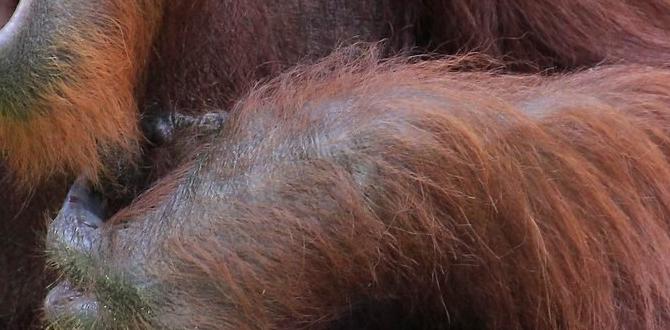Poodle Allergy Food: Must-Have Options
Poodle allergy food is a significant concern for many dedicated owners who want to ensure their beloved companions live healthy and happy lives. While Poodles are renowned for their intelligence and hypoallergenic coats, they are not immune to food sensitivities and allergies. These can manifest in various ways, from itchy skin and ear infections to gastrointestinal upset. Fortunately, navigating the world of specialized Poodle diets is becoming increasingly manageable with a growing array of high-quality, veterinarian-approved options available. Understanding the common culprits and the best dietary approaches is key to finding the perfect food to resolve your Poodle’s discomfort.
Understanding Poodle Food Allergies
Before diving into specific food recommendations, it’s crucial to understand what constitutes a food allergy or sensitivity in dogs. Unlike true allergies, which involve an immune system response, sensitivities are more about a dog’s digestive system struggling to break down certain ingredients. However, the symptoms often overlap. Common triggers for Poodles, as with many breeds, include:
Proteins: Chicken, beef, dairy, and eggs are frequent offenders.
Grains: Wheat, corn, and soy are often implicated, though not always the primary cause.
Additives: Artificial colors, flavors, and preservatives can also cause reactions.
Symptoms of a food allergy or sensitivity in Poodles can include:
Skin Issues: Persistent itching (especially around paws, ears, and hindquarters), redness, hot spots, hair loss, and recurrent ear infections.
Gastrointestinal Problems: Vomiting, diarrhea, gas, and changes in stool consistency.
Behavioral Changes: Restlessness, discomfort, and excessive licking or chewing due to itching.
If you suspect your Poodle is experiencing a food-related issue, the first and most important step is to consult your veterinarian. They can help rule out other potential causes for your dog’s symptoms and guide you toward a proper diagnosis, often through an elimination diet.
The Benefits of Specialized Poodle Diets
Once a food allergy or sensitivity has been identified, selecting the right food becomes paramount. The market offers a variety of options designed to cater to dogs with specific dietary needs. These specialized diets often share common characteristics:
Novel Protein Sources: Foods that use protein sources your Poodle hasn’t been exposed to before, such as duck, venison, rabbit, or fish, can be excellent choices. This minimizes the chance of triggering a reaction to a common allergen.
Limited Ingredient Diets (LID): As the name suggests, LID formulas contain a minimal number of ingredients, making it easier to pinpoint and avoid specific allergens. They typically feature a single protein source and a limited number of carbohydrates.
Hydrolyzed Proteins: In these diets, proteins are broken down into smaller molecules that are less likely to be recognized and trigger an allergic reaction by the immune system.
Grain-Free Options: While grains aren’t always the problem, many owners opt for grain-free foods to eliminate a potential trigger. These often use alternative carbohydrate sources like sweet potatoes, peas, or tapioca.
Hypoallergenic Formulas: Some brands specifically market “hypoallergenic” foods, which are formulated to be highly digestible and exclude common allergens.
Custom Dog Food for Allergies for Poodles: A Tailored Approach
For Poodles with particularly stubborn or complex allergies, custom dog food for allergies for Poodles can be an incredibly effective solution. This approach moves beyond standard off-the-shelf options and offers a highly personalized dietary plan. Here’s why it’s a game-changer:
Precise Ingredient Control: Custom formulations allow for complete control over every ingredient. This means you can carefully select protein sources, carbohydrates, fats, and even specific vitamins and minerals that are known to be safe for your individual Poodle.
Based on Veterinary Recommendations: Often, custom food plans are developed in conjunction with your veterinarian or a veterinary nutritionist. This ensures that the food not only avoids allergens but also provides complete and balanced nutrition tailored to your Poodle’s specific age, breed, activity level, and health status.
Elimination Diet Support: Custom food is invaluable during an elimination diet. Instead of juggling multiple limited-ingredient foods and still risking cross-contamination or hidden ingredients, you can provide a single, consistent diet that meets all nutritional needs while strictly excluding potential allergens.
Addressing Multiple Sensitivities: If your Poodle reacts to more than one ingredient, a custom blend can be designed to exclude all of them simultaneously, something that might be difficult to achieve with pre-made options.
High-Quality, Palatable Ingredients: Many custom dog food providers prioritize high-quality, human-grade ingredients, often making the food more palatable for picky eaters.
When considering custom dog food for allergies for Poodles, look for reputable companies that work closely with veterinary professionals and offer transparency about their ingredient sourcing and manufacturing processes.
Key Ingredients to Look For (and Avoid)
When scrutinizing pet food labels for your Poodle, keep this guide in mind:
Look For:
Single, Novel Protein Sources: Duck, lamb, venison, rabbit, salmon, whitefish.
Easily Digestible Carbohydrates: Sweet potatoes, peas, tapioca, potato.
Healthy Fats: Fish oil (rich in Omega-3 fatty acids for skin and coat), flaxseed.
Prebiotics and Probiotics: To support gut health and aid digestion.
Limited, Natural Preservatives: Vitamin E (tocopherols), rosemary extract.
Avoid:
Common Allergens: Chicken, beef, lamb, dairy, eggs, corn, wheat, soy.
Artificial Colors, Flavors, and Preservatives: These offer no nutritional value and can cause sensitivities.
By-products: Unless specifically identified and of high quality.
Navigating the Transition to a New Diet
Switching your Poodle to a new food, especially a specialized or custom one, should be done gradually to avoid upsetting their digestive system.
1. Start Slow: Over 7-10 days, gradually increase the amount of the new food while decreasing the old food. A good rule of thumb is to add 25% new food every two days.
2. Monitor Closely: Even with a slow transition, watch for any signs of digestive upset (vomiting, diarrhea) or worsening allergy symptoms.
3. Consult Your Vet: If you encounter any issues or if your Poodle’s symptoms don’t improve after several weeks on the new diet, don’t hesitate to reach back out to your veterinarian. They can help you adjust the plan or explore further diagnostic steps.
Finding the right Poodle allergy food can feel like a daunting task, but with patience, research, and the support of your veterinarian, it’s entirely achievable. Prioritizing high-quality, appropriately formulated foods, and considering the personalized benefits of custom dog food for allergies for Poodles, will pave the way for a more comfortable, energetic, and joyful life for your cherished canine companion.
Meet Elyse Colburn, the devoted canine companion and storyteller behind the enchanting world of “Tales, Tails, and Adventures Unleashed.” A passionate dog enthusiast with a heart full of paw prints, Elyse Colburn shares heartwarming tales and insightful adventures, celebrating the joy, loyalty, and endless antics that make every dog a true hero. Join Elyse Colburn on this tail-wagging journey, where every post is a love letter to our four-legged friends.





